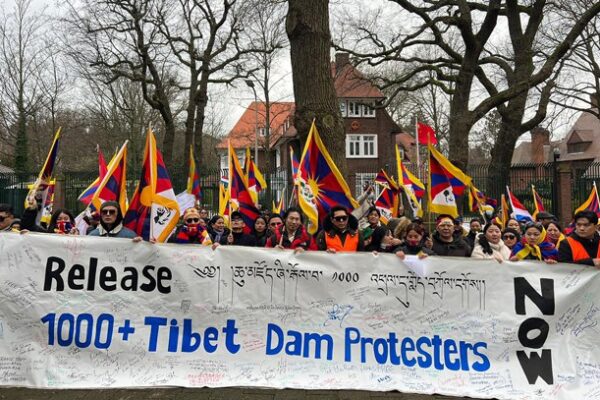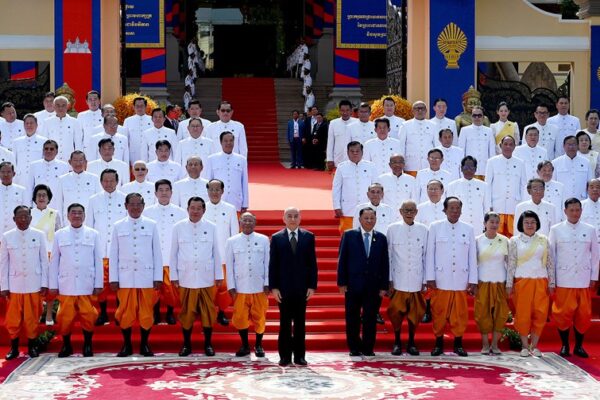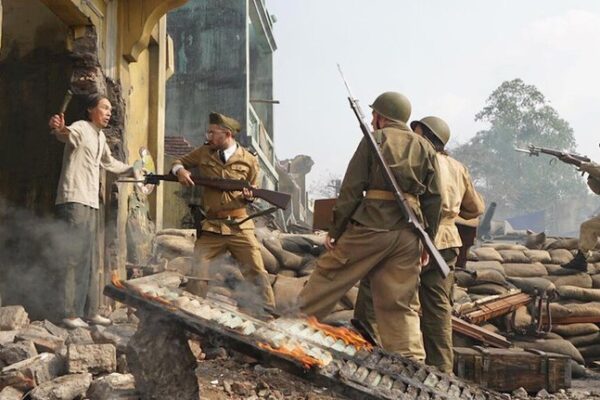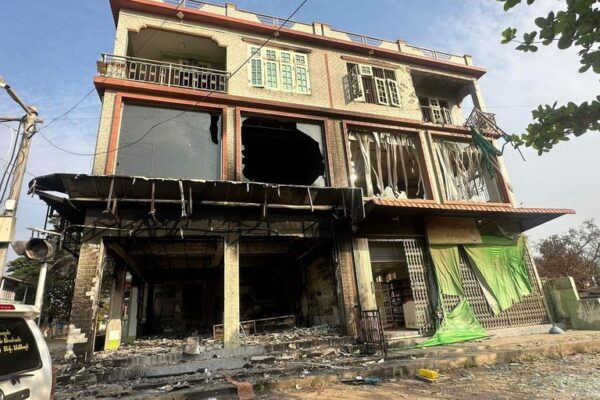
Junta imposes martial law in rebel-controlled Shan state townships
Myanmar’s junta has declared martial law in three northern Shan state townships seized by ethnic rebels during an ongoing offensive, prompting concern from residents who fear the military is planning a push to retake the areas. The junta has declared martial law in more than 60 townships across the country, including in Sagaing, Magwe, Tanintharyi and Bago regions, as well as in Chin state. The designation has been used as a justification by the military to impose heavy punishments on residents on the basis of suspicion alone. Observers say the junta had refrained from declaring martial law in Namhsan, Mantong and Namtu townships in northern Shan state with the hope the Ta’ang National Liberation Army, or TNLA, would join a ceasefire agreement. The declaration, announced Monday, is an indication that negotiations have stalled, they said. The TNLA, the Arakan Army, and the Myanmar National Democratic Alliance Army together make up the ethnic Three Brotherhood Alliance, which in October launched an offensive known as Operation 1027 against the military in northern Shan state, which borders China. Less than two months after the start of Operation 1027, the TNLA captured Namsan, Mantong and Namtu, on Dec. 15, 22 and 28. Since then, the ethnic army’s top leadership has regularly conducted public meetings with what they say is an emphasis on a “community-based governance system” in the townships. In Namtu, municipal, healthcare and electricity services have been restored, according to residents, and inhabitants who fled earlier fighting have mostly returned home. While the TNLA remains the de facto leadership in the three townships, the junta’s imposition of martial law technically transfers their administrative and judicial oversight to the commander of the military’s Northeastern Command, based in the region’s largest town Lashio. Residents told RFA Burmese that the declaration of martial law came “just as the situation began to stabilize,” and said they now fear renewed clashes between the military and the TNLA. “We are now under TNLA governance, and the junta no longer exists here,” said a resident of Namtu who, like others interviewed for this report, spoke on condition of anonymity due to security concerns. Now that martial law has been declared, it’s as if they could attack us whenever they want.” All three townships are within 160 kilometers (100 miles) of the Northeastern Command, the resident noted, which “adds to our unease.” “We may need to prepare trenches and bomb shelters once again,” she said. ‘Even less secure’ A resident of Namsan told RFA that while the situation in her township wasn’t safe before, “now it feels even less secure.” “The use of airplanes to drop bombs and the indiscriminate use of heavy weaponry add to our concerns,” she said. “While some people have not yet returned to their homes, others have just come back.” An official from the TNLA news and information department told RFA that the junta’s declaration of martial law in the three townships was no surprise. “That’s just what they do,” he said. “During the height of fighting, the junta declared martial law in [eight northern Shan state] townships … now, post-battle, announcing martial law in these three townships aligns with their strategic approach.” On Nov. 12, as Operation 1027 reached a crescendo, the junta declared martial law in the townships of Lashio, Kutkai, Kunlong, Hsenwi, Namhkam, Muse, and Chinshwehaw, as well as in Laukkai, in the Kokang Self-Administered Zone. A curfew remains in effect in the townships, with movement restricted between the hours of 6 pm and 6 am. The Three Brotherhood Alliance captured 16 cities in Shan state, including Muse and Chinshwehaw, as part of the offensive before agreeing to a ceasefire in China-brokered talks with junta representatives on Jan. 11. An ex-military official later said it was not sustainable and less than a week after the agreement, both sides were accused of violating it in a skirmish. Last week, the two sides met again in the Chinese city of Kunming for talks that focused on reopening parts of the border with China that had been shut down during the fighting and preserving the ceasefire. ‘It’s clear they’ve given up’ But a political commentator and former military officer told RFA that peace in northern Shan state remains tenuous. He said that while the junta had been holding out hope that the TNLA would join Myanmar’s Nationwide Ceasefire Agreement, or NCA, the declaration of martial law in the townships under its control indicates that the military leadership no longer sees that as an option. “[The junta was] indecisive from the beginning, and even was vacillating [on how to deal with the TNLA],” he said. “Now, it’s clear that they’ve given up trying [to bring them into the NCA].” The NCA was introduced in 2015 to end years of fighting over minority rights and self-determination. Since then, some 10 ethnic groups have signed the agreement. Ta’ang National Liberation Army troops pose after capturing a Myanmar junta camp in Mantong on Dec. 23, 2023. (PSLF/TNLA News and Information Department) The junta’s declaration of martial law in Namhsan, Mantong and Namtu follows a Jan. 28 declaration in the Shan state townships of Mongmit and Mabein. The two townships had earlier been seized by the Kachin Independence Army. The latest declaration brings to 13 the number of townships under martial law in Shan state. Township captured The imposition of martial law on Namsan, Mantong and Namtu came amid reports on Tuesday that the Arakan Army, or AA, had captured Ponnagyun township in western Myanmar’s Rakhine state, where it continues to battle the military despite the Three Brotherhood Alliance ceasefire in Shan state. In a statement, the AA claimed that Ponnagyun is under its “complete control” after 13 days of fighting, from Feb. 21 to March 4, culminating in the capture of the military’s Light Infantry Division 550 base there on Monday. It said its fighters had seized “several bodies” of junta troops, including that of junta Tactical Commander Col. Myo Min Ko Ko, Light Infantry Battalion 208 Commander Col….







